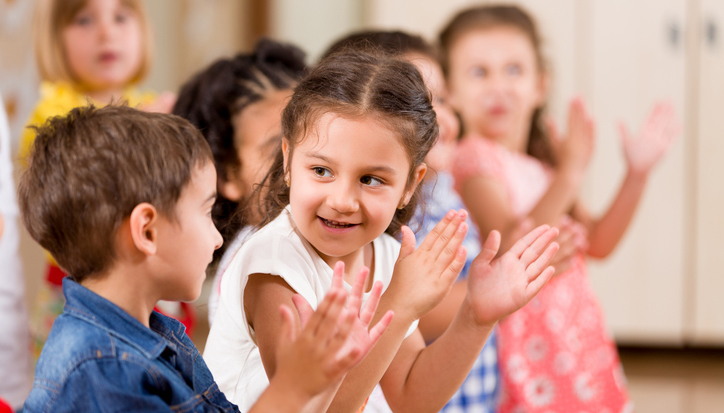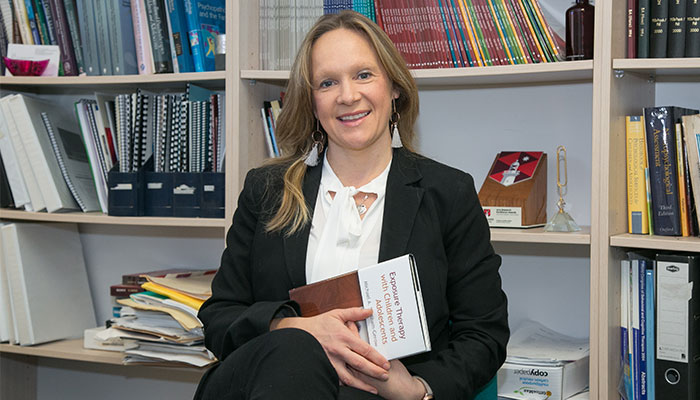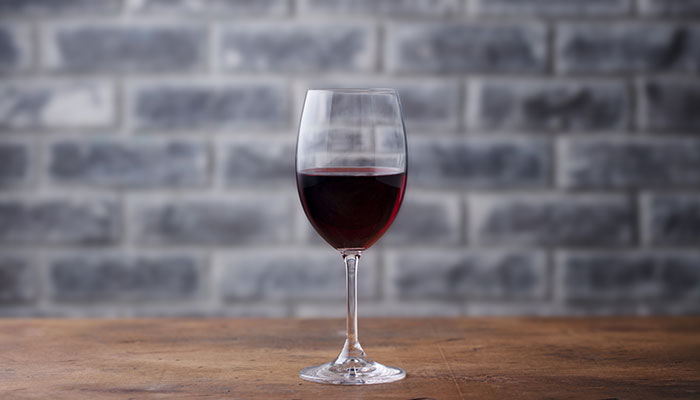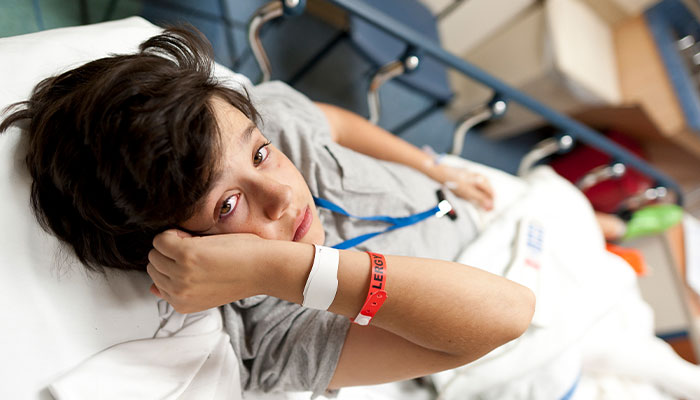Children with social anxiety have a misplaced perception of themselves, according to research by Professor Jennie Hudson, Director of the Centre for Emotional Health (CEH). Rather than being shunned by their peers, in fact they’re considered more likeable and popular.

Double-edged: Socially anxious children are often also sensitive, caring and eager to please.
The insights come from a study of 586 school children aged seven to 13 – by Hudson’s team collaborating with Dutch academics – which unexpectedly discovered the more intense school children’s social anxiety, the more their peers liked them compared to students with less social anxiety.
“Our research showed a mismatch of what the socially anxious child was thinking and what was really happening in the classroom,” she says. “Often if you are socially anxious, you also have many positive qualities such as being sensitive, caring and eager to please. These are appealing qualities in a friend.”
Previous research showed that when children watched videos of other children they didn’t know behaving anxiously, they rated them negatively. “It seemed that there was a stigma around that behaviour and they preferred to hang out with friends who were confident,” Hudson says. “So the result of our study was quite surprising.”
One of the differences with this current study, published in Cognitive Therapy and Research, was that it actually assessed children’s likeability – how well they were liked by people who knew them, rather than strangers.
Stomach aches and sleeplessness
Most children and teenagers sometimes feel a bit nervous in social situations and worry about how strangers or friends might react to them. This is normal behaviour, Hudson says.
But those who suffer from social anxiety experience symptoms including nausea, sleeplessness, trembling and stomach aches. Nearly seven per cent of four to 11 year olds in Australia have anxiety disorders, according to the Commonwealth Government’s report The Mental Health of Children and Adolescents (2015).

Worry: Professor Jennie Hudson says the Cool Kids program encourages children to face their fears to help shift their thinking.
“With social anxiety disorder, children are always thinking about the worst possible scenario and anticipating negative outcomes,” she says. “They worry excessively about other people thinking badly of them. This makes them withdraw from social situations.”
These children avoid speaking to adults or in front of the class, participating in class discussions or reading out loud. They dread meeting new people, making new friends, going to parties or joining a team or club.
Get help early
Hudson’s team is now feeding their findings into their Cool Kids anxiety program for their treatment of young people. Cool Kids, developed by researchers at the Centre for Emotional Health, is a renowned cognitive behaviour approach, which encourages participants to change their thoughts, feelings and behaviour in face-to-face sessions and online modules.
“We encourage children to try and be more realistic and not mind-read other people’s thoughts,” she says. “Instead we get them to be detectives and collect the evidence to shift their thinking themselves.”
Parents and teachers can play a supportive role empowering young people to solve their own problems. “If a child feels they did badly in a presentation, then you can say: ‘Well let’s look at it. Where are the facts? What do we know about the situation?’ – instead of just reassuring them.”
Often the kids with social anxiety are the quiet ones in the classroom and are difficult to detect.
Cool Kids encourages children to test out their beliefs and face their fears by actually carrying something out.
“For example, if a child is worried that if they act silly in front of others then they won’t be liked, we get them to deliberately do something silly. It could be wearing socks to school that don’t match or singing Happy Birthday loudly to a friend in the playground. Most of the time no one even notices.”
The Centre for Emotional Health is also trying to work with teachers to ensure that students with social anxiety don’t slide under the radar.
“Often the kids with social anxiety are the quiet ones in the classroom and are difficult to detect. They're shy and never put up their hand,” Hudson says. “They’ll rarely ask for help.”
She stresses that early intervention is vital to assist these children and have a positive impact across their lifespan. “If you have anxiety as a child, you’re much more likely to have anxiety as an adolescent and then as an adult, and develop a range of other mental health issues such as depression or substance abuse.”
Register for the Cool Kids anxiety program.
Jennie Hudson is a Professor in the Department of Psychology and Director of the Centre for Emotional Health at Macquarie University.



